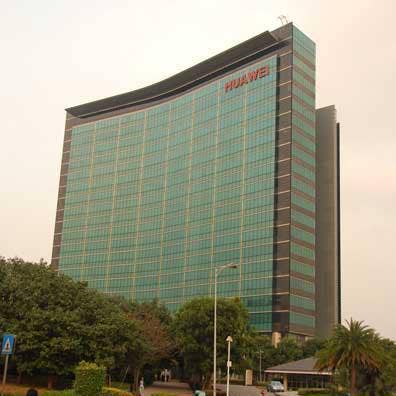Huawei's U.S. Business Reportedly Faces Layoffs As Firm Gets Mixed Messages
The U.S. Senate and House are trying to prevent the U.S. president from easily relaxing restrictions on trade between Huawei and U.S. tech companies, while Huawei was rebuffed by a federal court over intellectual property issues.

Huawei’s business in the U.S. is in a state of flux as the U.S. executive and legislative branches have offered mixed messages -- at the same time as the company's research arm, Futurewei, is planning “extensive” layoffs, according to a report in The Wall Street Journal.
After U.S. President Donald Trump signaled a possible easing of the trade war between the U.S. and China and the possibility that U.S. suppliers would be welcomed to resume sales of software and component technology to Huawei, the U.S. Senate on Tuesday introduced legislation aimed at preventing Huawei from accessing such technology.
Even as apparent disagreements between the president and Congress send mixed signals about how China-based Huawei will be treated by the U.S. government, Huawei is also facing more business-related setbacks in its move to be a part of the U.S. telecom market in the form of layoffs and the losing of a patent-related lawsuit.
[Related: Huawei Executive: ‘We Seem To Be Caught In The Middle’ Of U.S.-China Trade War]
A Huawei spokesperson told CRN via email that the company declined to discuss these events because of a policy to not comment "on rumors or speculation."
Six U.S. senators--Tom Cotton (R-Arkansas) and Chris Van Hollen (D-Maryland), along with Senators Marco Rubio (R-Florida), Mark Warner (D-Virginia), Richard Blumenthal (D-Connecticut), and Mitt Romney (R-Utah)--on Tuesday introduced legislation they say aims "to reinforce the Trump administration's efforts to prevent the Chinese-owned telecom company Huawei from threatening America's national security."
That legislation, called the Defending America's 5G Future Act, would prohibit removing Huawei from the Department of Commerce's Entity List without an act of Congress, and would allow Congress to disallow any wavers that any the U.S. administration would grant to allow U.S. companies to work with Huawei. The Entity List is a list of foreign businesses, research institutions, governments and private organizations, individuals, and others who are subject to specific license requirements for the export, reexport and/or in-country transfer of specified items, according to the DoC's Bureau of Industry and Security.
Four U.S. congressmen have also introduced a companion legislation in the House of Representatives.
The introduction of the two legislative acts counter a series of tweets by President Trump on June 29 which said that, in addition to not increasing tariffs on goods imported from China, Huawei will be allowed to purchase at least some components from the U.S.
"At the request of our High Tech companies, and President Xi, I agreed to allow Chinese company Huawei to buy product from them which will not impact our National Security. Importantly, we have opened up negotiations again with China as our relationship with them continues to be a very good one," Trump tweeted.
However, the U.S. Department of Commerce in early July was told by John Sonderman, deputy director of the Office of Export Enforcement in the Commerce Department’s Bureau of Industry and Security (BIS), to consider any applications by U.S. companies for a license to sell to Huawei that the company is still on the Entity List of companies subject to a "presumption of denial" licensing policy.
The Department of Commerce confirmed at the time that Huawei remains on the Entity list. However, the DoC by press time did not respond to a request for further information about possible changes in response to the new legislation.
The U.S. government this spring blacklisted Huawei from purchasing high-tech components from U.S.-based companies over concerns about alleged close ties between Huawei and the Chinese government which raised U.S. government national security concerns.
Prior to that, Huawei, the world's largest telecom products producer, has been shut out of the U.S. telecom market for some time.
Aside from U.S. government concerns, Huawei has recently suffered a couple of business setbacks that could also impact its ability to rebuild its U.S. market.
Late last week, the Wall Street Journal reported that Futurewei Technologies, a U.S.-based R&D subsidiary of Huawei Technologies, plans to lay off up to several hundred of the 850-or-so people the organization employs in research labs in several locations including Texas, California, and Washington state.
Furthermore, CNEX Labs, a San Jose, Calif.-based developer of SSD controllers, said late las month that a jury in the U.S. District Court for the Eastern District of Texas found that Huawei Technologies misappropriated CNEX's trade secrets.
Alan Armstrong, CNEX CEO and co-founder, told CRN that Huawei Futurewei was accused of misappropriating CNEX information and presentations by posing at potential customers, getting the information, and passing it to their company's internal development group on a regular basis.
However, the jury did not award damages to CNEX because the technology in question had yet to go into production. CNEX is, however, filing for court costs, Armstrong said. "That's up to the judge," he said.
In a related case, Huawei sued CNEX and one of its co-founders for allegedly misappropriating its trade secrets. The co-founder in question, Yiren "Ronnie" Huang, was an employee of Futurewei until he left the company to help found CNEX.
Huang was found by the jury of failing to comply with a provision in his Huawei Futurewei employment contract that required him to inform Futurewei of any patents he filed within 12 months of leaving that company. The jury failed to find any harm caused to Huawei or Futurewei.